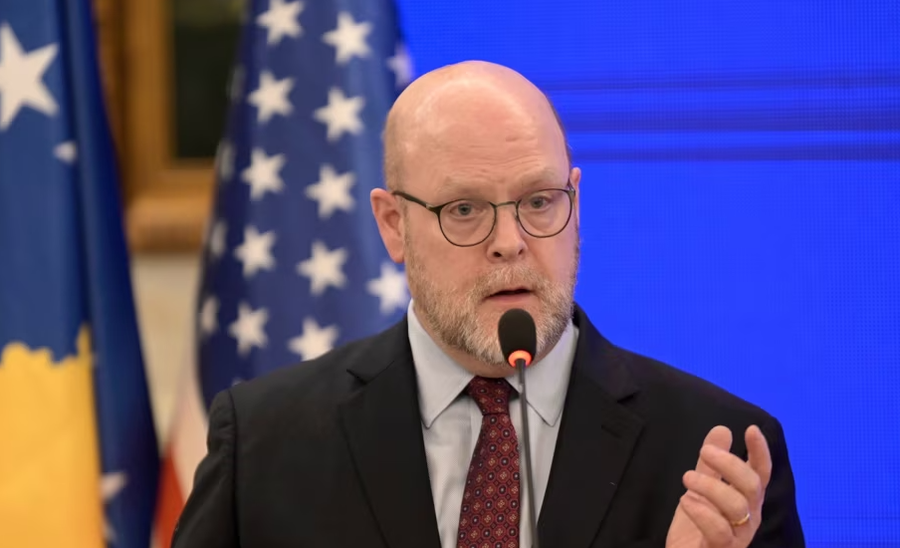
The United States Ambassador to Kosovo, Jeffrey Hovenier, said that in Kosovo there are "malicious foreign actors active who want to undermine Kosovo's democracy by exploiting ethnic divisions."
"We cannot allow this to happen," Hovenier said Tuesday in Pristina, at a DISICON information integrity conference organized by the Washington-based National Democratic Institute (NDI).
He added that misinformation can always have direct consequences, especially during the election period, which Kosovo is currently in before the February 9 elections.
He reminded the audience of a fake conversation published on social networks a few years ago, which included a fake conversation between him and Prime Minister Kurti and which was "intended to sow distrust within the Kosovo Serb community".
"Thankfully, not many people took it seriously... But the fact that an actor wrote a script, prepared a script, created a recording completely designed to sow distrust and concern in the Serbian community and published it on social networks is an indication of this problem", emphasized the American ambassador.
Hovenier, who is ending his term in Kosovo at the end of December and is retiring, stressed that the US remains committed to Kosovo as a diverse country and to supporting independent media, including those run by minorities.
“And, we are very conscious of the media providing unbiased and accurate information. We are aware that there are some who try to use this claim to do something else entirely, to deliver a message that aims for very, very different purposes than informing the community. This must be denounced and we must support the independent media", declared Hovenier.
He said "our work together is far from over".
"In fact, you could argue that [work] on this issue has just begun, and we're really willing to engage with all of you to find new ways to help you protect your democracy," he said. says the American ambassador in Pristina.
A day earlier, the study of the Kosovo Center for Security Studies was presented at this conference, where it was said that disinformation campaigns in the country are deliberately spread to strain inter-ethnic relations.
This study shows that the majority of Kosovars, regardless of ethnicity, believe that misinformation is affecting inter-ethnic relations.
Most even say that they themselves have come across such misinformation.
Ramadan Ilazi, director of research at the Kosovo Center for Security Studies (KKSS), says that this misinformation is spread significantly more in cases where there are tensions in the north of Kosovo inhabited by a majority of Serbs - such as last year's attack in Banjska or the attack in the Ibër-Lepenci channel.
He believes that the Russian media services, RT and Sputnik, in Serbia, which operate despite the sanctions imposed by the USA and the EU, play a role in the distribution of this disinformation.
Online media is seen among the platforms that do the most disseminating misinformation./ REL (A2 Televizion)











